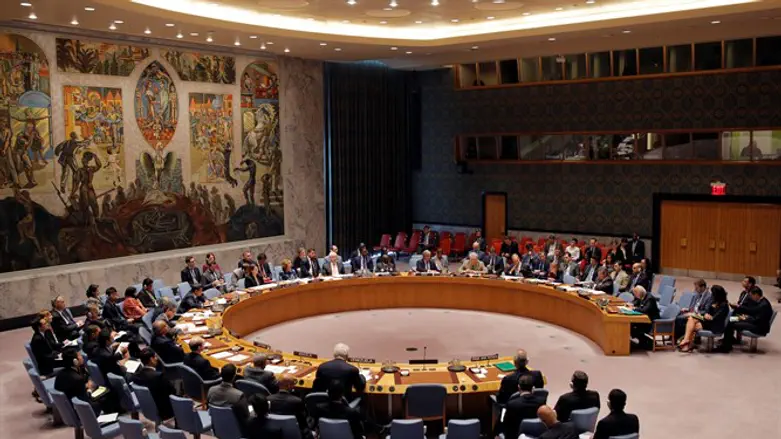
New Zealand’s foreign affairs minister did not have the required approval of the country’s Cabinet to support a United Nations Security Council resolution critical of Israel, an opposition party has charged.
On Tuesday, the leader of the populist political party New Zealand First cited the Cabinet manual as requiring such a proposal get Cabinet approval even though Prime Minister Bill English said that Foreign Affairs Minister Murray McCully did not need such approval to co-sponsor a measure calling for a halt to the building of Israeli settlements and the re-establishing of the pre-1967 borders.
“Section 5.73 of the Cabinet manual expressly requires that any international proposal, including ‘denunciation,’ must first be approved by Cabinet,” Winston Peters, the New Zealand First leader and a lawmaker for Northland, said in the party’s statement.
“Mr. McCully should never have been allowed to act unilaterally on such an important issue,” Peters also said.
Speaking of McCully, English said during questioning from lawmakers in the Parliament chambers on Tuesday, “As I have said previously, he did not require a specific Cabinet approval for policy that was longstanding New Zealand government policy.”
The other sponsors of the resolution that passed at the end of December were Venezuela, Malaysia and Senegal. The resolution passed late last month by a vote of 14-0 with one abstention, the United States.
Israel downgraded ties with New Zealand and Senegal over the resolution, recalling its ambassadors to the two countries following the vote. The diplomats have never been returned, a formal demotion of ties.
Last month McCully defended his country’s support of the resolution, writing in an op-ed published in the New Zealand Herald, “For the whole of New Zealand’s two-year term on the Security Council, the Secretary-General and his Special Coordinator have expressed alarm that the forces of incitement and violence and the relentless progress of the settlement program were undermining the two-state solution,” and that New Zealand would not have supported the resolution if the “misleading and irresponsible claims made by critics of the resolution” were true.